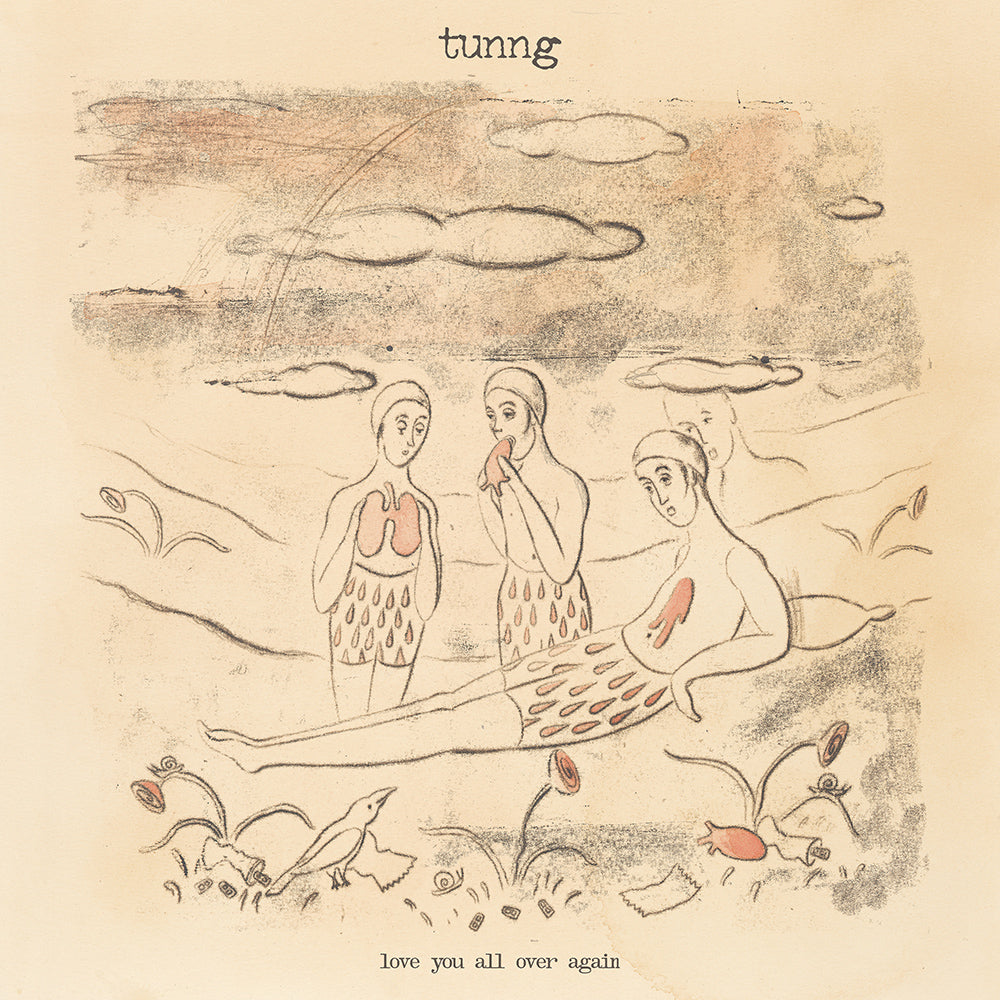Tunng

It’s hard to believe that over two decades have passed since Tunng's genre-blurring debut, This is Tunng... Mother’s Daughter and Other Songs, emerged from an East London studio.
Tunng’s eighth studio album, Love You All Over Again, marks a return to their roots, with Mike Lindsay and Sam Genders revisiting the influences of their early work.
Lindsay explains that they consciously reconnected with their original sound, drawing from the eclectic influences that shaped their early music. The album reflects this sense of full-circle, blending texture, melody, and intricate production in a way that recalls their first principles.
Over the years, Tunng’s sound has evolved, from early folktronica albums to more live-band and experimental productions. They've toured globally, collaborated with Tinariwen and gained widespread critical acclaim. Between albums, the band’s members have also pursued solo projects, but Love You All Over Again sees Lindsay and Genders back at the helm.
With its mix of folk-hymnal intimacy, electronic textures and surprising arrangements, Love You All Over Again feels like a quintessential Tunng album. It’s both familiar and fresh, capturing the band’s eclectic spirit and sense of wonder, while also feeling like a comforting presence in uncertain times.

Love You All Over Again
Listen to Tunng's 2025 album Love You All Over Again, featuring the singles 'Everything Else', 'Snails' and 'Deep Underneath'
Records & Merch
-
Tunng 'Love You All Over Again'
Regular price From $16.00 USDRegular priceUnit price / per$16.00 USDSale price From $16.00 USD -
Tunng Presents...Dead Club
Regular price From $16.00 USDRegular priceUnit price / per$16.00 USDSale price From $16.00 USD -
Tunng - Mother's Daughter and Other Songs
Regular price From $21.00 USDRegular priceUnit price / per$33.00 USDSale price From $21.00 USDSale -
Tunng - Songs You Make At Night
Regular price From $16.00 USDRegular priceUnit price / per$16.00 USDSale price From $16.00 USD -
Tunng - This Is...Tunng - Magpie Bites and Other Cuts
Regular price From $17.00 USDRegular priceUnit price / per$14.00 USDSale price From $17.00 USD -
 Sold out
Sold outTunng - ...And Then We Saw Land
Regular price From $16.00 USDRegular priceUnit price / per$16.00 USDSale price From $16.00 USDSold out -
Tunng - Comments Of The Inner Chorus
Regular price From $16.00 USDRegular priceUnit price / per$16.00 USDSale price From $16.00 USD -
Tunng - Turbines
Regular price From $16.00 USDRegular priceUnit price / per$16.00 USDSale price From $16.00 USD -
Tunng - Good Arrows
Regular price From $16.00 USDRegular priceUnit price / per$16.00 USDSale price From $16.00 USD -
Tunng - Tunng & Tinariwen - Live @ Koko DVD
Regular price $10.00 USDRegular priceUnit price / per$10.00 USDSale price $10.00 USDSold out -
Tunng - Love You All Over Again Tee
Regular price $35.00 USDRegular priceUnit price / per
1
/
of
11











